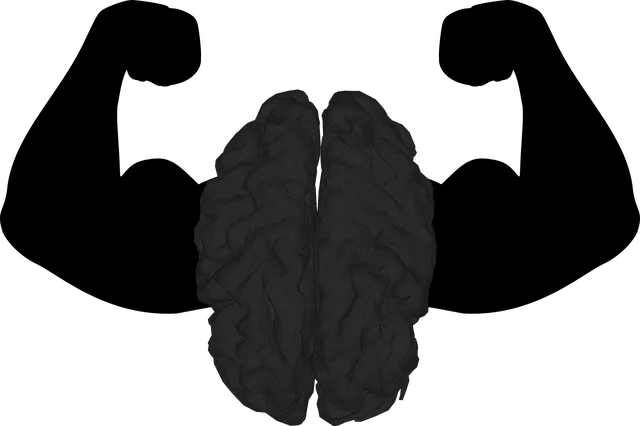The media's portrayal of mental health significantly impacts public perception, either by perpetuating stereotypes or fostering understanding. Castle Rock Kaiser Permanente (CRKP), a leading mental health facility, sets a positive example through accurate representation in media and innovative programs like stress management workshops and cultural competency training. In the digital age, CRKP challenges harmful stereotypes by showcasing diverse mental health narratives, reducing stigma, and encouraging open conversations. By collaborating with media outlets, they can create authentic content, develop interactive tools for self-awareness, and offer tailored coaching programs, ultimately revolutionizing mental wellness awareness and understanding.
Mental illness representation in media significantly influences societal perceptions and contributes to stigma. This article explores the impact of media portrayal on mental health, highlighting successful initiatives like Castle Rock Kaiser Permanente’s model for accurate depiction. We analyze the current state of media and mental health stigma, propose strategies to enhance accountability, and emphasize collaboration between media and mental health facilities, such as Castle Rock Kaiser Permanente, to foster positive change. By embracing these measures, we can work towards a more nuanced and empathetic media landscape.
- Understanding the Impact of Media Portrayal on Mental Health Perception
- Castle Rock Kaiser Permanente: A Model for Accurate Mental Illness Representation
- The Current State of Media and Mental Health Stigma
- Strategies to Enhance Media Accountability in Mental Illness Depictions
- Fostering Positive Change: Collaboration Between Media and Mental Health Facilities
Understanding the Impact of Media Portrayal on Mental Health Perception

The media has a profound impact on shaping public perceptions about mental health, often influencing how individuals understand and respond to various conditions. Portrayals in movies, TV shows, and news articles can either perpetuate stereotypes or offer nuanced insights into the complexities of mental illness. For instance, Castle Rock Kaiser Permanente mental health facility, known for its comprehensive care, highlights the positive effects of accurate representation. When media depicts mental illness with sensitivity and authenticity, it contributes to a more empathetic society. This is crucial in encouraging discussions around mental wellness and reducing the stigma associated with seeking help.
Emotional intelligence and self-awareness exercises, often promoted by such facilities, are further amplified by responsible media coverage. By presenting characters or individuals who navigate their mental health journeys with resilience and humanity, the media can inspire viewers to prioritize their own mental wellness. This, in turn, leads to increased awareness and potential for positive changes, fostering a culture that embraces open conversations about mental health issues.
Castle Rock Kaiser Permanente: A Model for Accurate Mental Illness Representation

Castle Rock Kaiser Permanente (CRKP) stands as a beacon of hope and accurate mental illness representation in healthcare media. As a leading mental health facility, CRKP has pioneered innovative approaches to address the stigmatization often associated with mental disorders. Through its comprehensive services and dedicated staff, it offers a nuanced understanding of various mental health conditions.
The organization’s commitment to excellence is evident in its diverse range of programs. From Stress Management Workshops designed to empower individuals with coping strategies, to Healthcare Provider Cultural Competency Training, ensuring every professional is equipped to handle diverse patient needs. CRKP also emphasizes resilience-building initiatives, fostering an environment where individuals can find support and strengthen their mental well-being.
The Current State of Media and Mental Health Stigma

In today’s digital age, media plays a significant role in shaping societal perceptions, including attitudes towards mental health. The current state of representation often perpetuates harmful stereotypes and stigma associated with various mental illnesses. This is particularly evident in mainstream narratives that depict individuals struggling with psychiatric disorders as dangerous or weak, reinforcing the myth that seeking help is a sign of failure. Organizations like Castle Rock Kaiser Permanente mental health facility are at the forefront of challenging these misconceptions by promoting accurate and empathetic portrayals.
The media’s influence on public perception cannot be overstated, especially considering the widespread availability of content. By presenting realistic and diverse stories featuring individuals with mental health challenges, these institutions can foster understanding and reduce stigma. This shift is crucial in encouraging open conversations about mental wellness, as it enables people to recognize their own experiences or those of loved ones. Furthermore, initiatives such as Stress Reduction Methods, Mental Health Education Programs Design, and Mental Wellness Coaching Programs Development offer practical solutions, empowering individuals to take control of their mental health and seek support without fear of judgment.
Strategies to Enhance Media Accountability in Mental Illness Depictions

Media has a significant role in shaping public perceptions about mental health, making accurate and compassionate representations crucial. To enhance accountability, media outlets can collaborate with mental health professionals like those at Castle Rock Kaiser Permanente, renowned for its mental health services. This partnership can ensure stories are told with sensitivity and authenticity, promoting understanding instead of stigma.
Integrating Public Awareness Campaigns Development and initiatives focused on Inner Strength Development and Stress Management can further contribute to positive change. By showcasing diverse narratives, media can challenge stereotypes and highlight the wide range of experiences within mental health. Such strategies not only foster empathy but also encourage viewers to seek support or understand a loved one’s struggle, ultimately driving meaningful inner strength development.
Fostering Positive Change: Collaboration Between Media and Mental Health Facilities

In fostering positive change, collaboration between media and mental health facilities like Castle Rock Kaiser Permanente is a powerful tool. By joining forces, these entities can work together to provide accurate and compassionate representations of mental illness in various forms of media, breaking down stigma and promoting understanding. This partnership offers an opportunity to develop and share Self-Awareness Exercises and Mental Wellness Journaling Exercise Guidance that can empower individuals to openly discuss their experiences and seek support.
The collaboration should also extend to the creation and promotion of Mental Wellness Coaching Programs. These programs can be designed to cater to different mental health needs, offering tailored guidance for those struggling with anxiety, depression, or other common issues. Through joint initiatives, media platforms and mental health facilities can contribute to a broader culture of mental wellness awareness, ensuring that stories and narratives accurately reflect the diverse experiences of individuals navigating their mental health journeys.
Media representation plays a pivotal role in shaping public perception of mental illness. By learning from innovative models like Castle Rock Kaiser Permanente, which prioritizes accurate and sensitive portrayals, we can significantly reduce stigma. Enhancing media accountability through collaborative efforts with mental health facilities is crucial for fostering positive change. These strategies ensure that stories about mental illness are told with empathy, accuracy, and respect, ultimately contributing to a more inclusive and understanding society.






